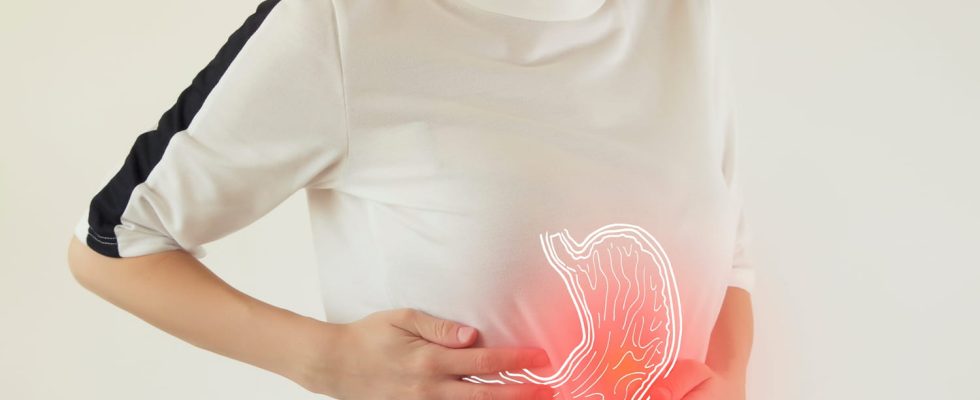Pathology of the stomach without gravity, the achlorydrie is characterized by an absence of production of hydrochloric acid in the gastric liquid. Most often causing no particular problems, this condition does not require specific treatment.
What is achlorhydria?
Achlorhydria is a pathology of the stomach “which consists of a drastic decrease in stomach secretion due to destruction of glands which produce hydrochloric acid“, explains Professor Robert Benamouzig, gastroenterologist and hepatologist. The acid serves to promote digestion, it contributes to the proper functioning of the pancreas and digestive tract. As a disinfectant, it also limits the proliferation of bacteria and microbes.
What are the symptoms of achlorhydria?
Achlorhydria does not cause no symptoms, which makes it difficult to diagnose. It often goes unnoticed. “People can live very well with achlorhydria, it is not disabling.“However, there may be consequences, especially on a poorer iron absorption. There may also be vitamin B12 deficiencies provoking paleness and fatiguerelated to a low production of red blood cells.
What causes achlorhydria?
Achlorhydria is attributed to the destruction or reduced activity of the parietal cells of the stomach which secrete hydrochloric acid. “It occurs in two circumstances, after removing the stomach and in persons who present with autoimmune gastritis with complete atrophy of the gastric mucosa, as occurs in the Biermer’s disease or atrophic gastritis related to the natural aging process.”
What tests to know if you have achlorhydria?
There are no specific routine examinations because “achlorhydria is not a clinical gateway“, recognizes the Professor. The only examination that exists but which is no longer practiced consists of pass a probe into the stomach to analyze the gastric pH and see if it remains high after stimulation.
What treatment to treat achlorhydria?
“Achlorhydria does not require treatment“, however, it may be necessary to monitor deficiencies especially those in vitamin B12 and to compensate for them.
Thanks to Professor Robert Benamouzig, gastroenterologist and hepatologist at the Avicenne hospital in Bobigny.
